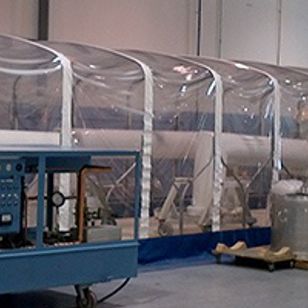The Bottom-Line Impact of Modular Industrial Air Filtration on Manufacturing Capabilities
A closer look at how modular air filtration can positively impact a manufacturer's bottom line while keeping the prospect of bringing finishing capabilities in-house more practical.
Read MoreDuroair at AeroDef 2019: Advanced Air Filtration Solutions for Aerospace and Defense
Meet Duroair at AeroDef 2019, where we will be showcasing advanced clean air solutions designed to increase efficiency and reduce capital expenditures for mission-critical manufacturing operations.
Read MoreAddressing Your Industrial Indoor Air Quality Questions
We're clearing up the confusion with answers to a few of the most common questions we hear about OSHA indoor air quality.
Read MoreMaximize Manufacturing Plant Layout and Increase ROI with Modular Industrial Air Filtration
Modular industrial air filtration is a flexible, cost-effective option for manufacturers who want to retain floor space, protect employee health, and avoid space-consuming conflicts.
Read MoreClearing the Air on OSHA Indoor Air Quality
OSHA and other environmental watch dogs don’t officially regulate indoor air quality (IAQ), which means it’s up to manufacturers to set their own standards for how they improve indoor air quality in manufacturing operations.
Read MoreMission-Critical Manufacturing on a Budget: Five Ways Air Filtration Increases Efficiency
Cost-efficient, flexible air filtration is one way defense manufacturers can make the cut for budget-conscious, large-scale projects. Here are five ways this innovative technology can increase efficiency and reduce capital expenditure for defense OEMs.
Read MoreSelling the ROI of Exceeding Environmental Compliance: 5 Questions to Make Your Business Case for Industrial Air Filtration
It’s a no brainer why EHS regulations are in place to enforce workplace safety in industrial facilities, but what about the impact of clean air on your overall operations?
Read MoreThe Benefits of Modular Air Filtration Solutions for Metal Fabricators
When considering the wide-reaching impact on employee safety, productivity, and your budget — an effective industrial air filtration solution is far more than just a compliance consideration for metal fabricators.
Read More





